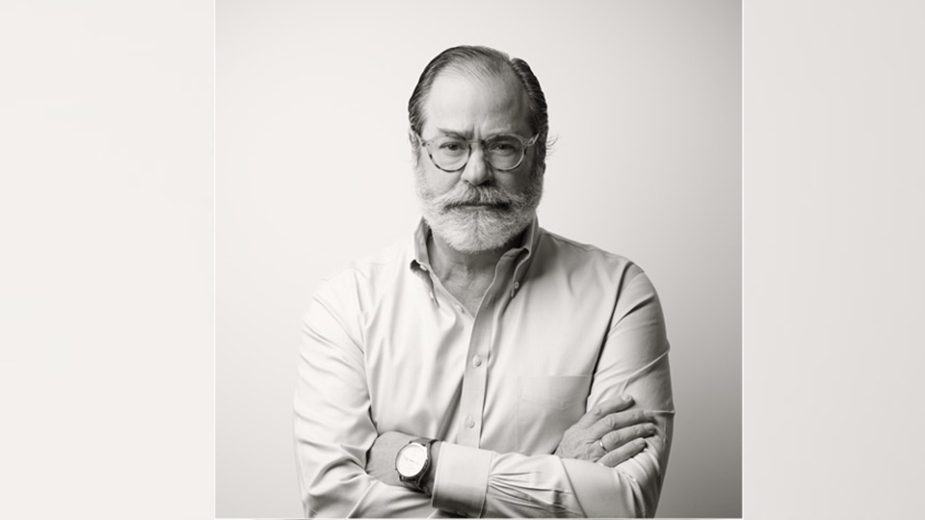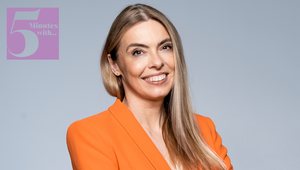
“In the Next Decade, LATAM Will Be a Premiere Creative and Production Hub”

MullenLowe Group LATAM CEO Francisco Samper has over 35 years of experience in the advertising and communications business. He started his career at McCann Erickson, becoming CEO of the Colombian branch in 1992 before co-founding Lowe SSP3 in 1996, where he has led the agency to a number of local, regional and international honours.
In 2018, MullenLowe SSP3 received the Grand Prix in Innovation for Ministry of Communication & Technology Colombia’s ‘My Line’ campaign, the first Innovation ‘Grand Prix’ in Latin America. The agency became the most-awarded LATAM agency at Epica 2018, and was the highest ranking agency in LATAM in the 2018 WARC Creative 100 ‘Top Agencies for Creativity’.
In this interview with LBB, Francisco shares his years of experience with lessons learned, his excitement for the evolution of LATAM and his wish for the year to come.
LBB> You have an impressive 35+ years of experience in the advertising and communications business. Looking back over your career so far, what would you say are the biggest lessons you have learned?
Francisco> I wish it was 35 years! I started off in ’79. With the passage of time, you realise that the old sayings are absolutely true, like ‘all in good time’ or ‘when one door closes, another opens’.
What I do love to see are people who started out with me or worked with me for a long time who have amazing responsibilities, and who, as I have often done with my own mentors and partners, reach out frequently to say thanks for something they remember having lived with us.
Things in this world don’t move horizontally but rather from the bottom up. That’s why you shouldn’t forget who has helped you in life and, above all, not forget that the hardest part is not climbing up the mountain, but staying there. In an industry that’s full of vanity and egos, the truth is that individual success does not exist. They are all shared successes, always. That is why the key - more than surrounding oneself by ‘industry celebs’ - is to build strong teams.
LBB> In 1996, you co-founded MullenLowe SSP3, leading the agency to a number of local, regional and international honours. What elements do you think led to its success?
Francisco> No doubt that we started off on the right foot. Humberto Polar and José Miguel Sokoloff were the creative directors with the best reputation in the market and I was managing the biggest, most successful, creative and vanguardist agency. Nonetheless, I think the key to our success was to think big from the start, to never feel less than others and to really focus on developing the best possible creative solutions for each job and expecting the money to come as a consequence. To approach each piece of work as if it were a first for the agency (or the last as if the agency’s survival depended on it). It’s always been like this.
LBB> As CEO of MullenLowe Group LATAM, how do you see this market developing over the next few years?
Francisco> The differences between LATAM and other regions in terms of technology are becoming smaller and smaller. However, as I often say, the most exciting thing our region has to offer is talent. The world is full of Latin talent covering the full spectrum of disciplines and roles. And this will continue to grow. I believe that it’s possible for us to not only become a creative power but also a production power for all types of content. I firmly believe that in the next decade, LATAM will be the premiere creative and production hub for all types of audio visual content.
We are the world’s leading seedbed of creative talent in practically all disciplines. More and more Latin talent is being hired abroad. My invitation is the opposite: bring us the work. Leave it in our hands.
LBB> It is said that your favourite phrase is "decir no es comunicar” (saying no is communicating) – what is it about this message that really resonates with you?
Francisco> There are so many phrases that I use all the time. I think the one that I use more often is “we must make things happen”, referring to the fact that good things don’t just come. One must make them happen, anticipate, provoke them.
As for ‘saying no is communicating’ I always ask my teams not to listen to what our clients want to say but why they are putting in their brief and what do they want to do. The world is full of disposable content. To know what a client really needs to happen is much more inspiring than to know what they want to say. We are the ones who should know what should be communicated and how to achieve those objectives.
LBB> You talk a lot about how work should impact society beyond the limits of marketing and advertising. Why is this so close to your heart and how do you strive to achieve this in everything that you do?
Francisco> Since founding the agency in 1996, we decided we would donate one campaign per year to a non-profit organisation to contribute to helping to build our country, instead of making monetary donations. I’m convinced that we are the Colombian agency that has made the most pro-bono campaigns in its history.
There was a point in time when each account team had at least one pro-bono client, and in some cases up to three per year. Maybe it’s because of that, that the Ministry of Defense reached out to us to help them with their demobilisation programme around 2006. But the truth is that that work changed the way I see and approach my career: to contribute to the voluntary demobilisation of 18,000 guerrillas in a little less than 10 years, to change so many people’s and families’ lives, to see how this contributed to the peace process, made me understand that all of us who have the possibility of working with communications - creatives, brands, the media - have a commitment to contribute to build a better world and a better society. Today many do this for awards or because it’s fashionable. Unfortunately, few do it because they listen to their conscience.
LBB> What do you think are the current challenges faced by the ad industry today? And what advice do you have to share with advertisers to help overcome these?
Francisco> While doing this interview, I read in the press that over a thousand global personalities, including Elon Musk and Steve Wozniak, have written an open letter asking AI developers to take a six month pause. What we are currently living was already unimaginable. We are all astonished by developments like the metaverse, ChatGPT or Bard. There is a lot of fear regarding where tech will continue to go. It’s fascinating and scary at the same time. Adopting new technologies and adapting to them will no doubt continue to be one of our most crucial challenges.
However, I feel that many times we forget that technology is a tool, a means and not an end. Its impact on our business is already enormous. Everything has become more sophisticated, almost too specialised, over-thought. You have to know about tons of platforms, processes, procedures. Everything must be done faster and for less. Everything with one goal: more efficiency to “deliver the message”.
In a hyperconnected world where anyone with a phone generates content and hence we are experiencing an overload of garbage content, shouldn’t the essence of a message continue to be the most important thing? How can we make the brand relevant and memorable (which is becoming harder to do)? Advertising has lost its capacity to surprise, to be liked, to entertain, to capture attention. What use is being able to “personalise” messages if what we say - and the way we say it - isn’t even attractive?
On the other hand, advertisers are constantly faced with the dichotomy of building brands and pursuing short-term results. This is already a huge challenge when almost every project goes to pitch. I believe much more in the agency-partner, the agency-consultant model, that really knows the brand inside out and can cover all the disciplines the advertiser needs.
Maybe this should have been part of my answer to your first question, but if there is something I’ve repeatedly confirmed with time it’s that when client and agency teams really integrate and work as one team, the results are impressive. Are there specialisms out there that the agency doesn’t have? Bring in specialised agencies and build a permanent team with diverse agencies, but don’t break up the relationship by fragmenting it among so many agencies and people who don’t really know, or love, or are invested in the brand.
LBB> Lastly, what are you most looking forward to achieving this year on a personal level?
Francisco> I’ve always been a workaholic and no doubt it has had its toll. Now what I most aspire is for the agency to continue doing great work for our clients, better work every day, that our people continue to grow and develop and to have a bit more peace and quiet to enjoy my family.













